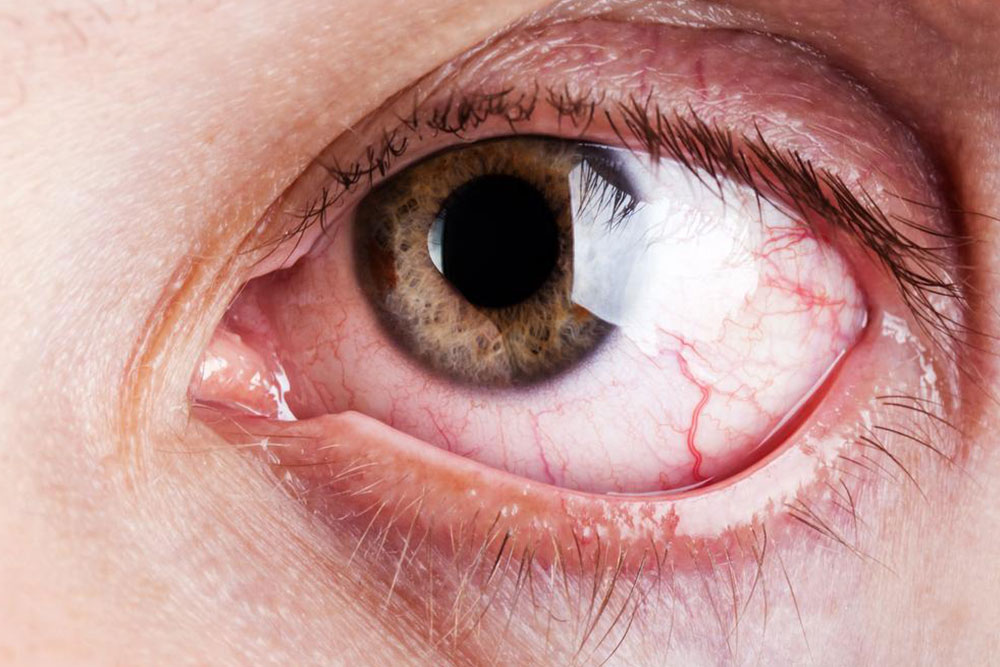Comprehensive Guide to Infertility: Causes, Symptoms, and Effective Treatments
This comprehensive guide explores infertility, its causes, symptoms, and modern treatment options. It emphasizes early diagnosis and personalized care, highlighting medical interventions and assisted reproductive technologies that help couples conceive. The article offers practical lifestyle advice and promotes awareness for those facing fertility challenges, aiming to inspire hope and informed decision-making in reproductive health.

Introduction to Infertility and Its Impact
Infertility is a complex and often misunderstood condition that affects millions of individuals worldwide. It is characterized by the inability to conceive after one year of regular, unprotected sexual intercourse. While infertility can be experienced by both men and women, it is especially relevant in the context of couples trying to conceive. The condition does not discriminate based on age, ethnicity, or background, but it is most commonly diagnosed in individuals aged 18 to 45. Understanding the causes, symptoms, and available treatments for infertility is essential for those affected, as it opens pathways to effective management and enhanced chances of conception.
What Is Infertility? And Why Is It a Concern?
Infertility is not just a personal challenge but a significant health concern impacting mental well-being, relationships, and even societal demographics. The inability to conceive can lead to emotional distress, feelings of inadequacy, and strained relationships. It is estimated that approximately 10% of women globally face difficulties with infertility, with men and women being affected with similar frequency. Medical advancements over the decades have provided numerous options for diagnosis and treatment, transforming infertility from a definitive barrier into a manageable condition. Advances in reproductive medicine, including in-vitro fertilization (IVF), intrauterine insemination (IUI), and hormonal therapies, have greatly increased success rates, offering hope to countless couples yearning for a child.
Understanding the Causes of Infertility
Infertility is caused by a variety of factors, which can be broadly categorized into issues that affect men and women separately. Recognizing these causes early can significantly improve treatment outcomes and help in planning suitable interventions.
Common Causes in Men
Male infertility primarily involves issues with sperm production or quality. Common factors include:
Low sperm count: When the number of sperm in semen is below normal levels, reducing the chances of fertilization.
Poor sperm motility: Sperm that cannot swim efficiently to reach the egg.
Genetic factors: Abnormalities in chromosomes can impair sperm production.
Hormonal imbalances: Disruptions in testosterone and other hormones that regulate sperm production.
Lifestyle factors: Excessive alcohol consumption, smoking, drug use, and exposure to environmental toxins can negatively impact sperm health.
Medical conditions: Varicocele (enlarged veins in the testes) or infections such as mumps can impair fertility.
Common Causes in Women
In women, fertility issues often revolve around ovulatory problems, age-related decline, and structural abnormalities. Key factors include:
Age: Female fertility declines naturally with age, particularly after age 35.
Irregular or absent menstrual periods: Indicating ovulation issues.
Polycystic ovary syndrome (PCOS): An endocrine disorder affecting ovulation.
Endometriosis: Condition where tissue similar to uterine lining grows outside the uterus, affecting reproductive organs.
Blocked fallopian tubes: Often due to infections or pelvic inflammatory disease, preventing egg transfer.
Nutritional deficiencies: Lack of essential nutrients can impair hormonal balance and ovulation.
Recognizing symptoms such as irregular menstrual cycles, painful periods, or unexplained pelvic pain can prompt early diagnosis and treatment for women. Menstrual irregularities, such as skipped periods or abnormal bleeding, often serve as indicators of underlying problems requiring medical attention.
Symptoms Associated with Infertility
While infertility itself may not always produce noticeable symptoms, certain signs may hint at underlying issues:
In women: Irregular or absent periods, painful menstruation, abnormal bleeding, or hormonal symptoms like hair growth or acne.
In men: Reduced sperm volume, changes in penile or testicular size, erectile dysfunction, or pain/swelling in the testicles.
Couples experiencing these symptoms should consult healthcare providers for comprehensive evaluation and diagnosis.
Modern Treatments and Interventions for Infertility
The landscape of infertility treatment has advanced significantly over the past few decades. Depending on the cause and individual circumstances, options range from simple lifestyle adjustments to sophisticated medical procedures.
Medical and Surgical Interventions
Many causes of infertility can be addressed through targeted medical treatments:
Hormonal therapy: Medications such as Clomid or gonadotropins stimulate ovulation in women with ovulatory issues.
Surgical procedures: Corrective surgeries for blocked fallopian tubes, endometriosis removal, or varicocele repair in men.
Antibiotics: Treat infections that impair reproductive function.
These interventions can improve fertility prospects significantly when appropriately applied.
Assisted Reproductive Technologies (ART)
For cases where traditional treatments are ineffective, ART provides advanced solutions:
In Vitro Fertilization (IVF): Fertilization occurs outside the body, combining eggs and sperm in a laboratory, then implanting the embryo into the uterus.
Intrauterine Insemination (IUI): Process where sperm is directly inserted into the woman's uterus during ovulation to increase chances of fertilization.
Egg and Sperm Donation: For individuals with severe fertility issues, donated eggs or sperm can be used.
Surrogacy: A surrogate carries the pregnancy on behalf of intended parents when carrying a pregnancy is not possible or advisable for the woman.
Lifestyle Changes and Preventive Measures
A proactive approach involving lifestyle modifications can improve fertility outcomes:
Healthy diet: Consuming balanced nutrition rich in antioxidants, vitamins, and minerals.
Regular exercise: Maintaining a healthy weight to balance hormonal functioning.
Avoiding harmful substances: Limiting alcohol, quitting smoking, and avoiding recreational drugs.
Managing stress: Practicing relaxation techniques to reduce stress, which can affect hormonal balance.
Medical check-ups: Regular health screenings facilitate early detection and management of reproductive issues.
Implementing these measures can optimize fertility potential and improve overall reproductive health.Conclusion: Hope for Couples Facing Infertility
Infertility is undoubtedly a challenging condition, but thanks to contemporary medical advancements, many couples are finding effective ways to overcome it. Early diagnosis, understanding of underlying causes, and personalized treatment plans are key to success. Whether through lifestyle changes, medical treatments, or advanced reproductive techniques, hope remains bright for couples yearning for parenthood. If you suspect fertility issues, consulting a healthcare specialist promptly can set you on the path toward conception and building a family.





